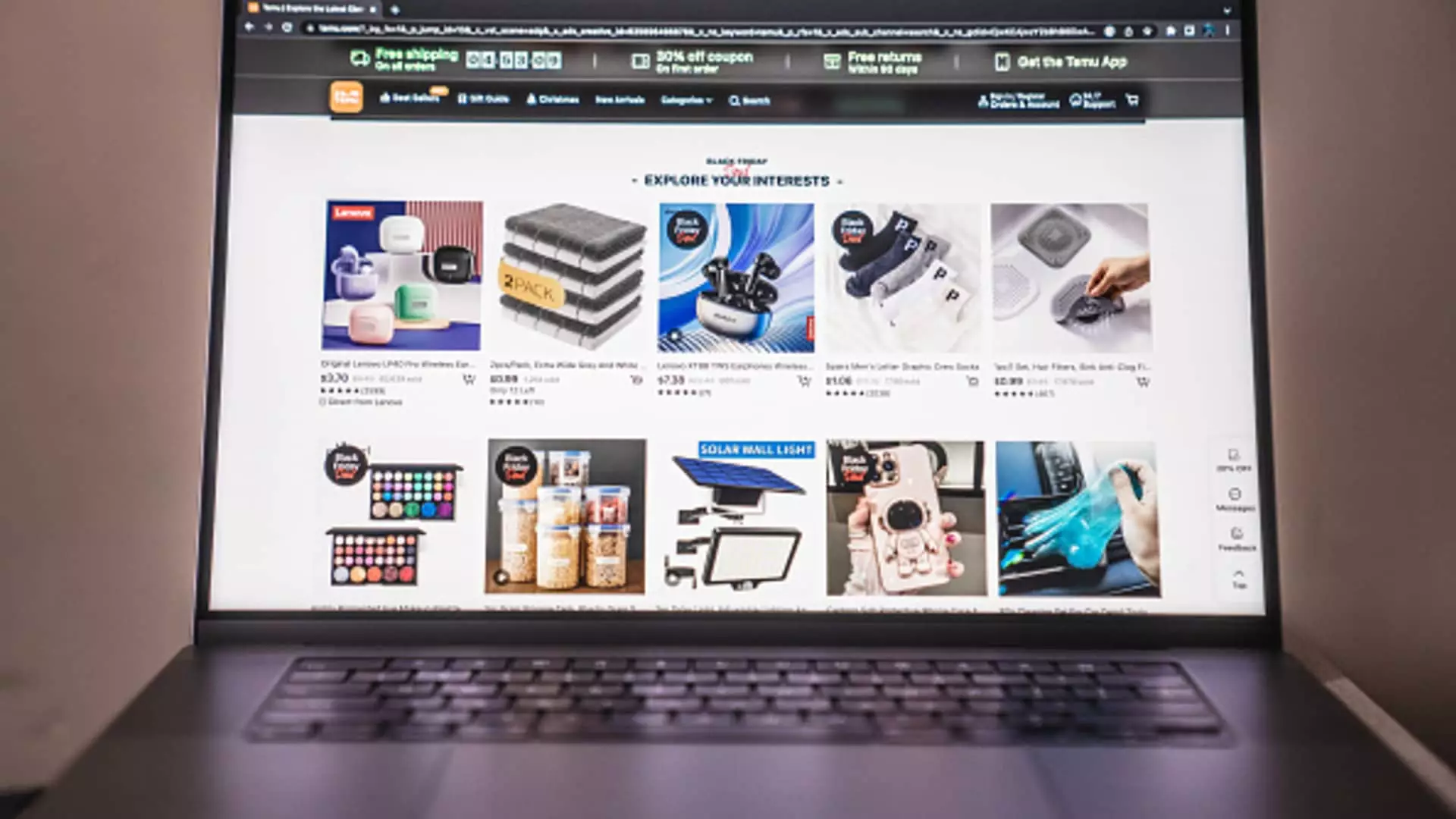In recent years, the landscape of online shopping has been transformed by the emergence of discount e-commerce platforms, particularly those owned by foreign entities, such as Shein and Temu. These platforms have gained immense popularity in the United States, primarily due to their aggressive marketing strategies and the allure of low-priced goods that often seem too good to be true. With items such as shoes priced at a mere $3 or smartwatches at $15, it’s no surprise that consumers are drawn to these platforms. However, alongside their rapid rise in popularity comes a wave of concerns regarding safety standards and product compliance, particularly when it comes to children’s items.
Safety Concerns: A Pressing Issue
The U.S. Consumer Product Safety Commission (CPSC) has recently found itself in the spotlight as two of its members, Peter Feldman and Douglas Dziak, have publicly voiced their concerns regarding the safety practices of these foreign-owned platforms. The commissioners are advocating for a thorough investigation into the safety controls that Temu and Shein have in place. Their letter highlights specific allegations, such as the sale of hazardous baby products that pose suffocation risks, like padded crib bumpers and hoodies with dangerous drawstrings. These issues underscore a critical gap in regulatory oversight when it comes to products entering the U.S. market from abroad.
The Need for Compliance Examination
Feldman and Dziak’s call to action revolves around the need to understand these companies better—specifically focusing on their compliance controls and their relationships with third-party sellers. Given that these platforms often operate with minimal physical presence in the U.S., the enforcement challenges become even more pronounced. The crux of their argument lies in the fact that companies utilizing the de minimis exemption—allowing goods under $800 to enter the U.S. without duty—can exploit this loophole to bypass rigorous safety inspections. The potential implications on consumer safety are alarming and necessitate an urgent reevaluation of current regulations regarding imported goods.
In light of these concerns, representatives from Shein and Temu have attempted to alleviate public fears by emphasizing their commitment to product safety. Shein claims that customer safety is a priority and that they are investing heavily in compliance programs. Similarly, Temu affirms that it mandates its sellers to adhere to relevant laws and regulations with regard to product safety. However, such assurances raise questions about the effectiveness and transparency of their safety compliance measures. Are these companies truly equipped to ensure that every product sold on their platforms meets U.S. safety standards?
The increasing scrutiny from lawmakers and regulatory bodies points to a broader issue within the e-commerce sector. As platforms like Shein and Temu continue to grow, fueled by hefty marketing investments, the gap in regulatory oversight must be addressed. The CPSC’s request for additional funding to enable them to adequately monitor and regulate these emerging platforms has become a focal point in discussions regarding consumer protection. Without proactive measures, the risk to consumers—especially vulnerable groups such as children—remains significant.
The situation presents a critical juncture not only for Shein and Temu but for the entire e-commerce ecosystem. A balance must be struck between fostering innovative businesses that offer affordable products and ensuring that consumer safety is not compromised in the process. As e-commerce continues to burgeon, regulatory agencies must adapt and evolve to protect consumers while still encouraging healthy competition. Ensuring that safety is prioritized in online marketplaces will require a concerted effort from stakeholders at all levels—regulators, companies, and consumers alike.
The urgent need for enhanced oversight regarding safety practices of foreign-owned e-commerce platforms is undeniable. As the digital marketplace expands, it is imperative that consumer safety remains at the forefront of discussions, spurring necessary actions to safeguard the interests of the public. The scrutiny by the CPSC represents a hopeful step towards a more regulated and trustworthy e-commerce environment.


Leave a Reply